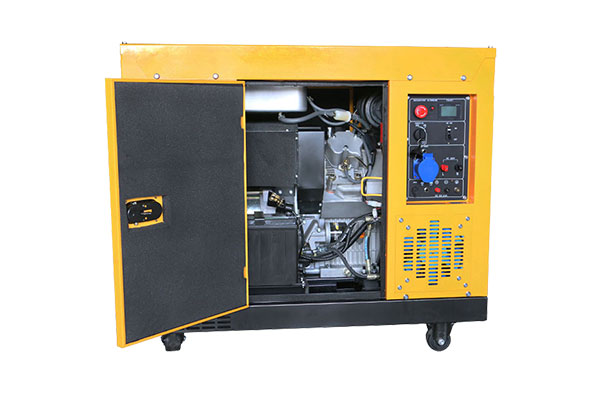Common Causes for a Diesel Generator Failing to Start
Diesel generators are reliable and efficient sources of backup power, widely used in various applications ranging from industrial settings to residential properties. However, like any mechanical equipment, they can experience issues that prevent them from starting when needed. Understanding the potential causes behind a diesel generator’s failure to start can help users diagnose and address the problem efficiently. In this article, RoadSky will explore some common reasons why a diesel generator may not start and provide troubleshooting tips to get it up and running again.

1. Fuel-related issues
One of the primary reasons why a diesel generator fails to start is fuel-related problems. These can include:
- Empty fuel tank: Always ensure that your generator has an adequate supply of fuel. Running out of fuel or having an insufficient amount can prevent the generator from starting. Check the fuel gauge or visually inspect the fuel level regularly.
- Contaminated fuel: Diesel fuel can get contaminated with water, debris, or microbial growth, leading to filter clogging or injector blockages. It is essential to use clean and high-quality fuel, regularly monitor fuel storage conditions, and consider using fuel additives to prevent contamination.
- Air in the fuel system: Air bubbles in the fuel system can disrupt the combustion process, causing startup issues. Bleeding the fuel system by using the manufacturer’s recommended procedures can help eliminate air pockets and ensure proper fuel flow.
2. Battery-related problems
Diesel generators rely on batteries to initiate the starting process. Several battery-related issues can prevent the generator from starting:
- Dead or discharged battery: Insufficient battery charge is a common cause of startup failure. Check the battery voltage with a voltmeter or perform a load test to ensure it has sufficient power. Regular battery maintenance, including cleaning terminals and ensuring tight connections, can help prevent such issues.
- Faulty battery charger: A malfunctioning battery charger can fail to provide an adequate charge to the battery. Test the charger or consider replacing it if necessary.
- Corroded battery terminals: Corrosion on battery terminals can hinder the flow of electricity, preventing the generator from starting. Clean the terminals using a wire brush and apply a protective coating to prevent future corrosion.
3. Engine-related problems
Issues with the diesel generator’s engine can also cause startup failures:
- Low coolant level: Inadequate coolant can lead to engine overheating, triggering a safety mechanism that prevents the generator from starting. Check the coolant level regularly and top it up as necessary.
- Air filter clogging: A dirty or clogged air filter restricts the airflow required for efficient combustion. Regularly inspect and clean or replace the air filter based on the manufacturer’s recommendations.
- Faulty glow plugs: Diesel engines use glow plugs to heat the combustion chamber for easy starting. If the glow plugs are malfunctioning or worn out, the engine may struggle to start. Test the glow plugs and replace them if necessary.
Conclusion:
A diesel generator failing to start can be frustrating and disruptive, but understanding the potential causes can help diagnose the issue promptly. Fuel-related problems, battery-related issues, and engine-related issues are some of the common culprits behind a generator’s failure to start. Regular maintenance, proper fuel management, and prompt troubleshooting can minimize the chances of encountering these problems. However, if the issue persists or appears to be more complex, it is advisable to consult a professional technician to ensure a safe and efficient resolution.

